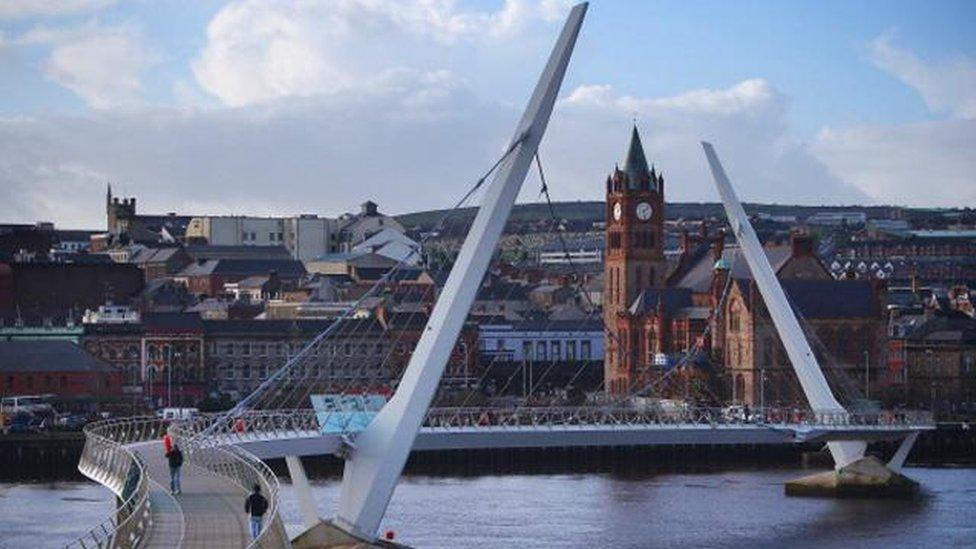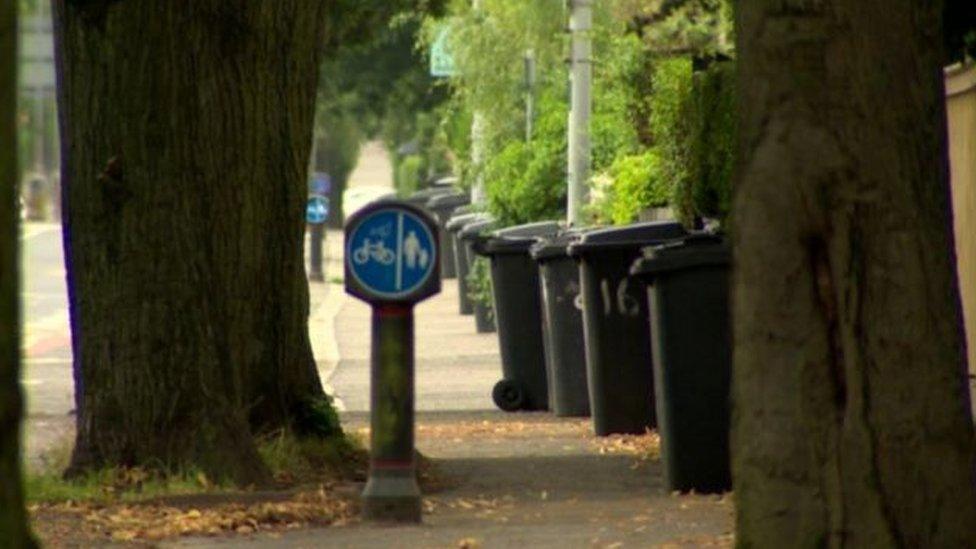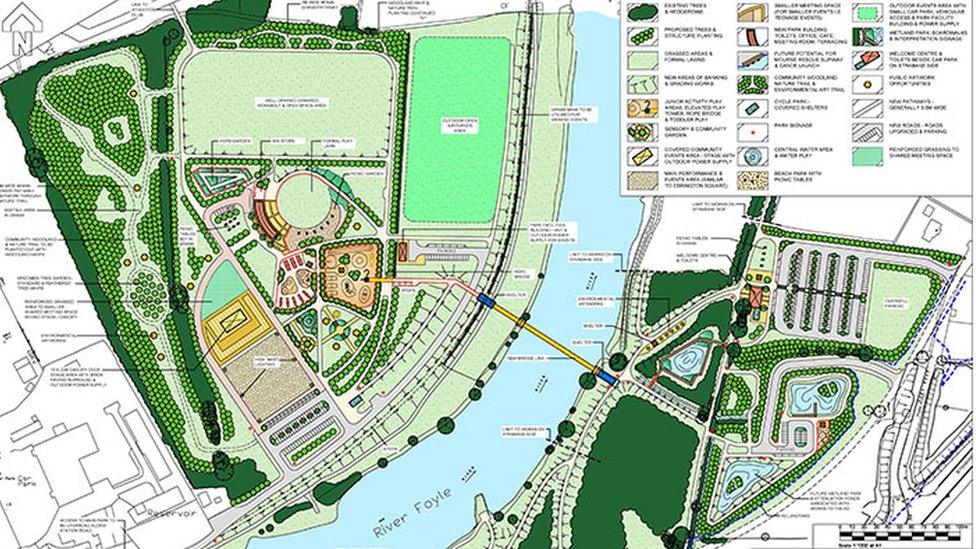Rates hike: Derry and Strabane council criticised
- Published
- comments

Council say the rise will ensure social, economic and environmental improvement across the district
Derry City and Strabane District Council has defended Northern Ireland's steepest hike in district rates.
On 1 April, the council increased rates by 3.46%, the biggest annual increase across all 11 councils.
Rates in Northern Ireland pay for public services and projects; bills are calculated on property value.
Derry and Strabane Council said the hike ensured the district's "continued social, economic and environmental improvement".
Some ratepayers say the rise is unjustified.
Paul Howie, who lives in Derry's Waterside, said his annual rates bill had risen significantly in recent years.

Some of the money from rates goes towards services such as bin collections
"There may well be others who feel they are getting their money's worth, but it doesn't seem that way for me," Mr Howie told BBC news NI.
"Now that one of my sons has gone off to university, I don't even leave my bin out once a week anymore.
"The council is great at putting on the big events and marketing the city has become so much better since the 2013 City of Culture year, but in a town with such high unemployment and such low disposable income, the level of the rise is pretty hard to take."
'Poor cousin'
Davy Ralston from Strabane said ratepayers there often feel more money is directed towards Derry.

The council said a number of capital projects were being prioritised, including the Riverine project that could transform 47 acres of Strabane
"We are not seeing any benefit to the rising rates of recent years," he said.
"Derry looks to be thriving and that's great, it's a brilliant city, but here in Strabane it does seem we are treated like the poor cousin."
He said he had no issue with paying rates because "we all want the best public services".
"The issue is that the rise here is higher than anywhere else and we are seeing nothing or little back."

Council domestic rates increases for 2019/20:
Antrim and Newtownabbey - 0.99%
Ards and North Down - 2.9%
Armagh, Banbridge and Craigavon - 1.96%
Belfast - 1.98%
Causeway Coast and Glens - 1.5%
Derry and Strabane - 3.46%
Fermanagh and Omagh - 2.3%
Lisburn and Castlereagh - 2.29%
Mid and East Antrim - 1.98%
Mid Ulster - 1.49%
Newry, Mourne and Down - 1.99%

A Derry and Strabane District council spokeswoman said the council had "already embarked on a portfolio of projects that are transforming local communities and additional rates investment will provide the necessary resources and capital match funding required to continue this drive for positive growth".
She said priorities for the year ahead included:
Greenway projects in the city
Wider greenway schemes linking Derry and Strabane to Donegal in the Republic of Ireland
Seven community centre projects earmarked for areas of Derry
Play and sports facilities across the district
Strabane's Riverine project
Progressing Derry's city deal proposal
In 2015, a new 11 council model replaced Northern Ireland's longstanding 26 local authorities.
The new system promised to make efficiency savings of some £438m over a 25-year period.
The first term of the new system comes to a close in the coming weeks with fresh elections taking place in May.
Before that, householders will receive their annual rates bills.
Using the Department of Finance's (DoF) online rates calculator and based on a £150,000 house, the BBC recorded the rates bill in the first year of each new council (2015/16) and the most recent year (2019/20).

Back in 2015/16, the average rates bill for a £150,000 house was £1,049.25. This year it will be £1169.59. That represents an increase of around 11.5%.
There are multiple reasons for differing rates in different council areas - everything from property prices, council income, population change, planned investment and legacy debt all have a bearing.
Derry City and Strabane Council also subsidises an airport. Not only does that council have the highest rate, but rates bills there have increased by more than any other.